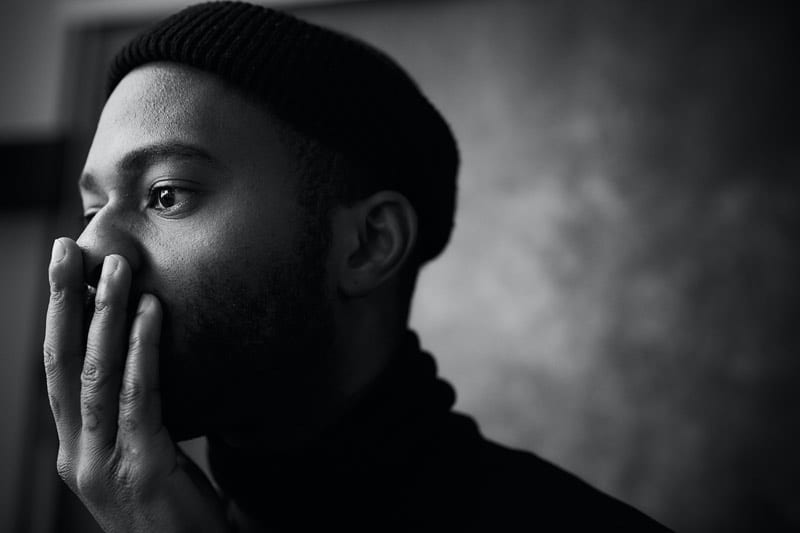Depression is a serious mental health condition that is characterized by feelings of sadness and hopelessness.
If you’re going through depression, you might wonder how long it will last.
While there is no average for how long it can take to overcome depression, it’s not uncommon for feelings of hopelessness to last several months. In more severe cases, such as my own, depressed individuals may experience these feelings on and off for several years.
In this article, I’ll go over why it’s important to seek treatment and, if you do, what you can expect as far as recovery time.
I’ve struggled with depression for several years, so I’ll be providing this information based on my own experiences dealing with depression rather than as a mental health professional.
Can depression go away on its own?
When talking with friends and family about your struggles with feelings of sadness and hopelessness, you’ll often come across the saying, “time heals all wounds.”
While people mean well when they say this, it just isn’t true for depression. Depression is a serious mental illness that doesn’t wither away with time. If left untreated, depression symptoms can actually become worse.
If you don’t seek treatment for your depression, your quality of life will suffer as a result.
In my case, I let myself stay in my depression for nearly ten years without any treatment, and things got very bad. I had morning depression that was so bad I couldn’t get out of bed to start work, and it was affecting all of my relationships.
If I was hanging out with friends, I’d be in my head talking myself down.
When dating, I wasn’t able to make sure the girl was having a good time because I was sticking to negative thoughts about things not going anywhere. I’d constantly be thinking about how I’m not good enough for her.
In addition to the possibility of facing issues similar to the above, untreated depression can increase your risk of suicide. To avoid this, it’s best to seek out treatment before things get too bad.
Why treatment is necessary and how to get it
If you want to treat your depression, you need to seek help from mental health professionals. This isn’t something you can simply fix on your own. Mental health professionals, such as therapists and psychiatrists, are trained in the science of how the mind works and can help you get on a path to feeling better.
If you’re feeling depressed, two forms of treatment that have worked for me are therapy and antidepressants.
How to find a therapist
When it comes to therapy, you don’t need to go to a doctor before you look for a therapist. You can use Psychology Today to browse professionals in your area filtered by the type of therapy they offer, insurance they accept, and more.
When seeking out a therapist, you may need to try going to a few different ones before finding someone who’s a good fit for you. It’s important that you like and trust your therapist.
Going on antidepressants
After some sessions with your therapist, he or she may recommend that you go to your primary care doctor and get antidepressants.
In my experience, antidepressants weren’t a cure-all, but they did help me get into a place mentally where I was able to think more clearly. This helped me execute the exercises my therapist gave me more effectively.
It may be the case that you need to try a few different types of antidepressants before you find one that works.
Choosing a psychiatrist
In some cases, if your depression symptoms are extremely severe (as mine were), your doctor may refer you to a psychiatrist.
Psychiatrists are doctors that specialize in mental health and the treatment of mental health disorders such as depression. While therapists help people address the cause of their problems, psychiatrists prescribe and monitor medications to control symptoms.
Like finding a therapist, it’s important to choose a psychiatrist that you like and trust so you can maintain confidence that he or she will be able to help you.
With treatment, how long does it take to overcome depression?
Fortunately, when I started treatment, including cognitive behavioral therapy and going on antidepressants, things began to turn around.
Initial attempts at therapy didn’t go well. I went to my therapist weekly and didn’t notice much of a difference, so she suggested that I go on antidepressants.
It took a few tries to find an antidepressant that worked. Since they can take six weeks to kick in, the process of finding an antidepressant that worked for me took a little over 12 weeks.
Once I found one that worked, I noticed my mood improved, and I was able to think more clearly about things. This newfound clarity made my therapy sessions much more effective.
While I still experience depression symptoms, I feel that after one year of treatment, from my very first therapy session to now, my life is finally at a point where my feelings are relatively normal. I’m able to work efficiently, I can have fun with my friends, and I’m able to see some positive things in life.
About the Author: Nicholas Rubright is a digital marketing specialist for Vortex Success – a website that provides tools for shifting their subconscious programming to help people live their life to the fullest. In his free time, Nicholas enjoys writing and playing music.
Photo by Darius Bashar on Unsplash
The opinions and views expressed in any guest blog post do not necessarily reflect those of www.rtor.org or its sponsor, Laurel House, Inc. The author and www.rtor.org have no affiliations with any products or services mentioned in the article or linked to therein. Guest Authors may have affiliations to products mentioned or linked to in their author bios only.





